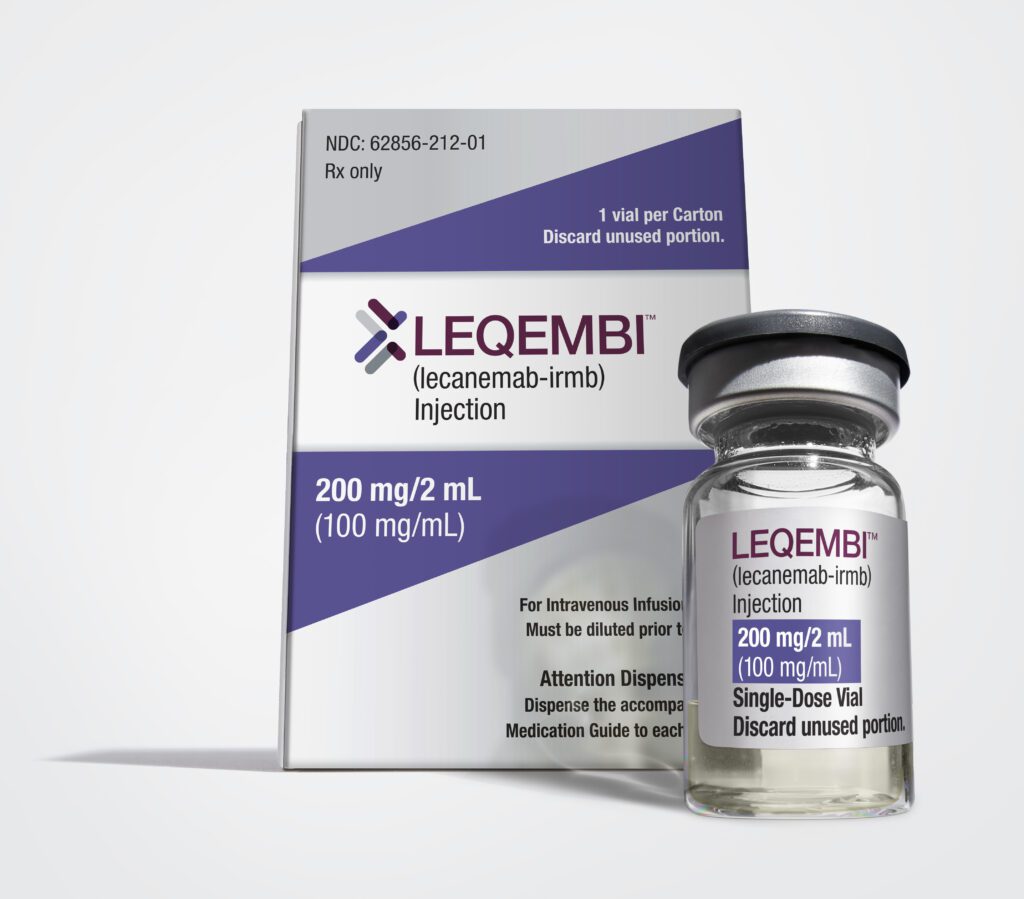On June 8, a Food and Drug Administration (FDA) advisory committee voted unanimously in favor of recommending traditional approval for LEQEMBI, the Alzheimer’s drug developed by Eisai and Biogen. The FDA granted accelerated approval to the drug in January.
Eisai and Biogen are both members of the Biotechnology Innovation Organization (BIO).
The drug, one of a new class of Alzheimer’s treatments, targets the amyloid beta (Aβ) plaque, “a defining feature of AD,” according to the press release from Eisai. In the confirmatory Phase 3 trial, the drug demonstrated “a highly statistically significant slowing of cognitive and functional decline (27%, p=0.00005) compared to placebo over 18 months.”
The FDA’s Peripheral and Central Nervous System Drugs Advisory Committee (PCNS) “confirmed the overall benefit-risk profile of LEQEMBI, the clinical meaningfulness of the data and discussed its use in specific subgroups, including Apolipoprotein E (ApoE) ε4 homozygote patients, patients requiring concomitant treatment with anticoagulant agents, and patients with cerebral amyloid angiopathy,” according to the press release.
The FDA is set to decide on traditional approval of the drug by July 6. While the advisory committee’s decision is non-binding, the FDA usually follows advisory committee decisions in these kinds of cases.
Will patients be able to access LEQEMBI?
LEQEMBI would be the first drug in this new class to receive traditional approval by the FDA.
The FDA granted accelerated approval to Biogen’s Aduhelm, which is in the same class of Aβ-targeting drugs, in 2022.
However, patient access to the drug remains uncertain. On June 1, Centers for Medicare and Medicaid Services (CMS) confirmed Medicare would only cover drugs in this class if they receive traditional approval AND if patients participate in a registry.
“While this is an important signal that CMS wants to improve access to FDA-approved treatments, registry as a condition of coverage is an unnecessary and potentially harmful barrier,” said the Alzheimer’s Association. “Additionally, although traditional approval appears just weeks away, CMS has not shared details relevant to ensuring patients and physicians can enroll with as few barriers as possible, including additional information about the data submission, registry requirements and details about how patients and physicians can enroll.”
“We are in full agreement with the FDA Advisory Committee that Leqembi provides clinical benefit and that this benefit outweighs the risks. Now all eyes turn to CMS,” said Alzheimer’s Association President and CEO Joanne Pike, DrPH. “Medicare is supposed to be a rock-solid guarantee for Americans, and it is time for CMS to step up and provide Medicare access on the day of an FDA traditional approval.”




